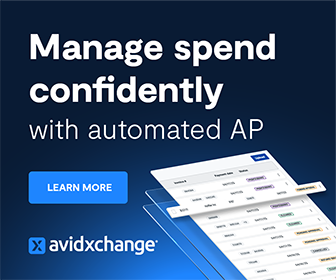The finance industry is experiencing an overhaul. Accountants and financial controllers have to face new realities set on by a global pandemic and its ripples in policies and customer behaviors. Now, a lot has been going on and to ensure that you haven’t missed a thing we have curated a list of the top issues that have made the news in corporate accounting.
A new kind of work environment
Hybrid and remote work environments are fast becoming the new normal across many industries. All thanks to the lockdown that forced companies to explore work-from-home options.
The finance industry has not been exempted from this change. In 2020, the idea that accounting could be done completely by virtual means was tested and proven. Even the IRS turned to video conferencing for transactions with all Large Business and International (LB&I) taxpayers and their accountants.
Definitely, a return to work was expected but experts say the workplace will never be the same as it once was. Their assumptions are solid for two primary reasons. Finance leaders saw the cost efficiencies of remote work and the freedom to source talents globally. Employees have also enjoyed the mobility and flexibility that remote work provides.
Although there is still much work to be done, remote work is here to stay. Of course, some companies would still very much like to recruit finance employees through traditional recruiting methods. That would mean a hybrid workspace as they may not be able to get all the talents they want to come into the office full time.
Automated accounting with AI, ML and RPA
Working remotely required more digital tools than was normal in accounting before the pandemic. Accounting software became increasingly needed to hasten and consolidate results. Post pandemic, automation in finance did not decrease; rather accountants and controllers have had to learn to adapt and manipulate automated processes for faster and error-free work. Deloitte’s 2020 survey on automation shows that 73% of corporate executives had begun automating their processes.
Robotic process automation (RPA) is used to automatically carry out repeated and rule-based tasks. These include form competition, data entry, appointment scheduling, data manipulation and triggering responses and communicating with other systems. Machine learning (ML) algorithms will soon be widely used to carry out processes such as invoicing, risk assessment, accounts payable and purchase order set up.
Before the pandemic, a Sage 2019 report showed that 58% of accountants wanted to incorporate artificial intelligence (AI) to increase their work efficiency. AI offers digitalization possibilities in accounting the CFOs would be smart to explore.
It is expected that companies will further automate accounting processes, to cut costs and increase efficiency. That is already affecting the roles of financial controllers and CFOs. Learn more in our webinar Accounting Robots: How to Automate the Finance Back Office.
Controllers roles evolve to technology, strategy, and talent management
In the last decade the roles of CFOs and controllers have been changing, thanks to recessions and technology. The pandemic served to accelerate those changes in a very short time as the traditional work model changed completely and quickly.
In the business climate of today, the CFO and controller are expected to engage in strategic thinking and provide predictive advisory services. It is the job of the controller or CFO to implement automation processes to increase accounting efficiency. With the use of such technologies, the demand for value-added services from CFOs and controllers will increase. The role of the CFO has made it so that they are seen as partners to the CEO.
The controller’s role has evolved into a tech and business savvy managerial role. They now take on many of the duties formerly reserved for CFOs, such as staff development, recruitment and audit control. Controllers are also trusted to deliver accurate and speedy reports using measurement tools, Key performance indicators (KPIs) and balanced scorecards.
Soft skills demanded of CFOs and controllers include adaptability, multi-faceted, team building, visionary and engaging leadership.
Learn more in our The Digital Controller/CFO Study, which identified the current trends in duties, roles, and responsibilities for Controllers, CFOs, and other accounting professionals.
Data analysis becomes a major accounting tool
Data analytics in accounting has become an important tool for CPAs to carry out taxation, risk management, auditing and consulting efficiency. Accounting software developers take clues from big data and the Internet of Things (IoT) to create new products that can help companies expand assessment scope and methods.
Analyzing data has proved useful in helping finance leaders identify potential challenges and weak spots that need attention. It has also helped with creating solutions to such problems. That is why 63% of companies globally are looking to incorporate data processing and analytics.
CPAs with a strong command of data analytics are the preferred candidates for finance and accounting positions these days. That’s because accountants can not adequately provide financial and strategy advice without data analysis skills.
Companies have been outsourcing data analytics to accountants with the expertise or data scientists. It has allowed accounting firms and businesses to get the best results from the best talents at the lowest possible costs.
New CPA Licensure Model Expected In 2024
Now that the duties typically expected of accountants are changing, it makes sense for accounting education to evolve too.
The current CPA licensure model does not prepare entry-level CPAs to understand and control business systems or carry out in-depth data analysis and organization controls. The skill gap has made firms turn to hire programmers and data analysts or outsource instead.
The issue became a source of concern to the National Association of State Boards of Accountancy (NASBA) and the American Institute of Certified Public Accountants (AICPA). So, the professional certification bodies set up the CPA Evolution Initiative to come up with a model that considers the organizing and technical skills CPAs must now have.
The licensure model has core and elective disciplines. The core, which every candidate will be tested in, delves deeply into accounting, taxation and auditing. The electives are information systems and controls, business analysis as well as reporting and tax compliance and planning.
The candidate’s choice of elective discipline does not limit the CPA’s area of practice. The new model exam is scheduled to be held for the first time in January 2024.
Discuss more about Corporate Accounting News in Our Community
Looking to learn more about the latest corporate accounting new? Controllers Council is a national community and platform of Controllers, Accounting and Finance professionals focused on accounting best practices, information and resources, recognition and networking. Membership has many features and benefits to propel your career and expertise, and to be an active participant in our exciting community. Discuss topics like corporate accounting news and more in our forum. Become a member today.




